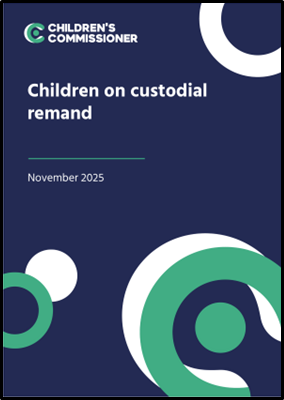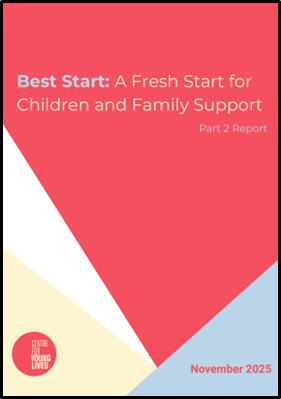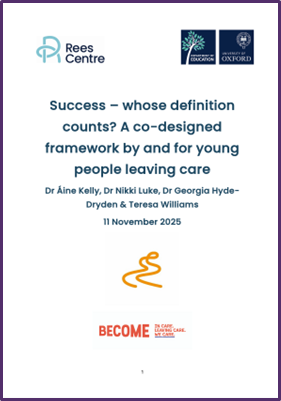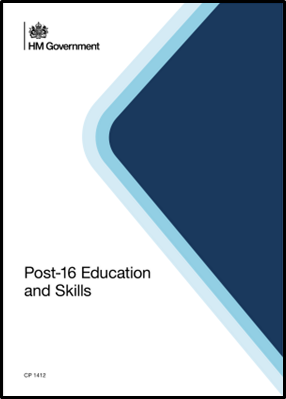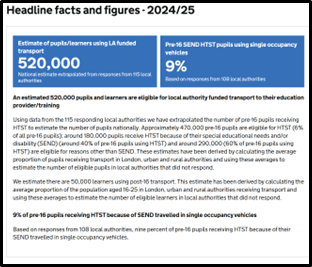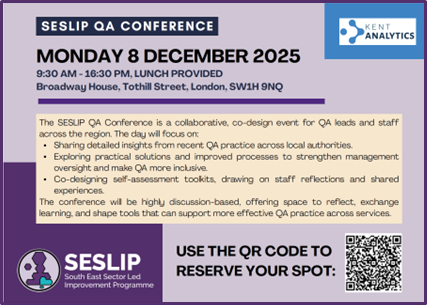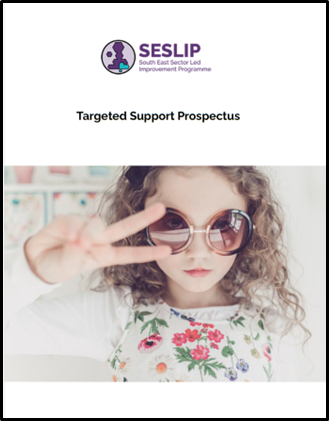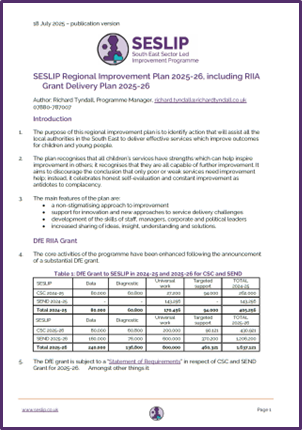Newsletters
Our Regional Improvement Plan can be found here
If you would like to apply to be a SESLIP consultant, please follow this link to Kent Business Portal – KentBusinessPortal and after registering on the portal, search for Ref – SC240046 – SESLIP – DPS
Updates
Reminders From Previous Weeks
Tools & Templates
We have produced a Regional Improvement Plan (July 2025)
On 11 November the Children’s Commissioner published Children on custodial demand
On 11 November Rees Centre published Success – whose definition counts? A co-designed framework by and for young people leaving care
On 5 November Centre for Young Lives published Best Start: A Fresh Start for
Children and Family Support
Part 2 Report
On 5 November DfE and DHSC launched an independent review of social work regulation
On 30 October Contact published a policy briefing How Continuing Care for Children fails those with the most complex health needs (England).
On 30 October DfE published the annual Children in need statistics for the year to 31 March 2025.
On 28 October DfE published Academic year 2024/25 Home to school transport: LA data collection
On 22 October MoJ published Presumption of parental involvement review: final report
On 20 October DfE published the Post-16 Education and Skills White Paper
On 20 October ONS published Suicides in children and young people across the academic year, England: September 2011 to August 2022
On 20 October The Children’s Commissioner published The Children’s Plan: Vision for Care
On 13 October The Domestic Abuse Commissioner published Everday Business
On 13 October Home+Future (the south east’s RCC) published Briefing 002 – cross regional placements
On 10 October The Youth Endowment Fund published Access to mental health support
On 6 October Ofsted published Children’s social care questionnaires 2025
On 3 October APSEND and CSTUK published Upstream – best practice examples from specialst, AP and mixed trust schools
On 3 October 2025 IFS published Support for children with disabilities and special educational needs as part of its Green Budget for 2025
On 2 October Kinship published its annual survey of Kinship carers “Handle with Care”
On 2 October 2025 EEF published an independent evaluation of the BITUP programme – a low cost programme to improve secondary school attendance.
On 26 September 2025 HMIPrisons published Children in custody 2024–25
An analysis of 12–18-year-olds’ perceptions of their experiences
in secure training centres and young offender institutions
On 25 September DfE published a research report, Family Routes: children who returned to care after leaving for adoption or to live with a special guardian
On 25 September 2025 the Centre of expertise on child sexual abuse published Developing your strategic response to child sexual abuse – A guide for safeguarding children partnerships
On 24 September 2025 West Midlands ADCS Network (the RIIA) published its team excellence awards brochure for 2025
On 24 September Speech and Language UK published Transforming SEND: An Alternative White Paper
On 17 September APPG for SEND launched Reforming the SEND
System in England
On 16 September The Law Commission published Disabled Children’s Social Care: Final Report
On 13 September BJSW published Fabricated or induced illness in England: Examining mortality and serious harm an article by Andy Bilson and Alessandro Talia


